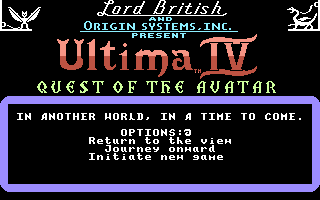Preaching text: Luke 24:44-53
Alleluia! Christ is risen!
We have, as we always do in the first part of the church year, following along with the life of Jesus. We were at his birth on Christmas, his baptism and ministry in Epiphany, his march to Jerusalem in Lent, his passion and crucifixion during Holy Week. And, now in Easter, we have been metaphorically joining with the apostles in their celebration of Christ’s resurrection. Starting with Easter morning when the first uncertain rumors of his rising begin to trickle through to the revelation that those rumors were true to Jesus’ instructions to his own as he prepares for his final departure, we have walked alongside the disciples through these past seven weeks. It has a been a party, a celebration. Christ is risen indeed.
But like all good things, the party must come to an end. And here again we find ourselves alongside those disciples as they wonder, “Now what?” Jesus is leaving. He is going back into heaven. He is rejoining the Father, going to sit at the right hand of God. And here we are, standing on the mountaintop, still full of exuberance from the celebrations of these last weeks, and wondering what happens now.
For 2000 years, in many ways, we’ve been asking that question. I would argue, in fact, that it may be the central question of the Christian faith. Salvation is a done deal. Jesus took care of all that himself. We who are baptized are assured of this. So there’s no question involving that. The question is “what do we do now that we are saved?” How do we live? If we are guaranteed heaven upon death and we’ve got however-many years until we die, what do we do with the time in-between?
Well, thankfully for us, Jesus answers that question.
Pretty much all of the Gospels say the same thing as Jesus’ final message. Whether it occurs on the mount of the Ascension or somewhere else, he gives us the same final instruction: Spread the good news.
Luke, whose Gospel we have for today, makes this clear. Jesus is speaking to his disciples and explains (as he did for the disciples on their way to Emmaus) his whole story from the Scriptures. He then adds two comments at the end. “repentance and forgiveness of sins is to be proclaimed in his name to all nations, beginning from Jerusalem.” and “You are witnesses of these things.”
Repentance and forgiveness is to be proclaimed to all the nations. Seems simple enough, but lest the disciples aren’t certain who is to do that, Jesus adds “you are the witnesses of this.” The language there is intentional. He’s not using the word “witness simply as “one who sees something happen” but he’s using it in the sense a courtroom might, “one who sees something happen and tells others about it.” One who testifies to an event. One who states with truthfulness that these things did happen.
Go and tell what Jesus has done for the sake of the world. Go and tell how God loves this world. Go and tell how God saves this world. Go and tell how God loves and saves everyone.
And there we are, metaphorically standing alongside those disciples, receiving this same instruction. We are their heirs, inheriting their purpose and task for this generation.
Unfortunately, as the heirs, we have the disadvantage of also being witness to what happened to those apostles after they left that mountaintop. Peter was crucified. James executed by Herod. Most of the others murdered on their missionary journeys. The rest imprisoned. Scary stuff.
Normally, I'd like to be able to say here we in this day and age don't need fear such a fate, but recent news events have proven that wrong. With Christians killed in Egypt for their faith to the two men in Oregon who died standing up for what is right and good in our society, there is proof that it can still be a dangerous thing to be a person of faith in this day and age. Our task is not going to be easy. There is still hostility to the message of Jesus Christ, and sadly ironic, as Oregon proves, these days that hostility sometimes comes most fiercely from our fellow Christians.
Jesus makes very clear this message is meant for everyone everywhere. Yet we live in a time of fear for people who are different, Fear of Muslims. Fear of black people. Fear of LGBT people. Fear of immigrants and refugees. We live in a time of hostility and cruelty towards those in need, the sick, the poor, the disabled. And portions of the church are encouraging these fears and hatreds. If we go and evangelize to such people, in word and in deed, what sort of reception will we get? If we feed the hungry both food and Word...if we care for the sick with both medicine and hope...if we embrace the stranger and welcome them into our midst...what happens to us?
I don’t know the answers but the signs of the times are troubling indeed. But again Jesus provides the answer. In Luke, he reminds the disciples “I am sending upon you what my Father promised” Matthew makes it more clear. “Lo, I am with you always, even to the end of the age.” What we do in Christ’s name, we never do alone. God goes with us. His Spirit is ever present in our work. We are not alone.
Neither were those who left that mountaintop to go out into the world to proclaim God’s message of mercy and love. They knew what they would face in a hostile world; they’d already seen it by what happened to Jesus on Golgotha. How could they expect any less? But they knew two things as they headed out into that hostile world. They knew that God was with them and they knew that God had already saved them.
And that message too comes to us. You, me, we are the baptized children of God, claimed by his Spirit and marked with his cross. Nothing can snatch us from his hands. There is nowhere we can go where we can escape his reach. Nothing we can do that can make him stop loving us or break his promise to us. Nothing that can happen to us that can change anything that he has done for us. His love is unstoppable. Let the world rage. What can it really do to us?
And what is true for us can be true for all. This is what God wants us to tell the world. This is what God wants us to show the world. A kingdom without fear or death or hate or ugliness. Where life and love have the last word. That’s what this is all about. Spreading that kingdom to all the corners of this world. Showing the world who our God is and what he seeks to do for the people of this world. A grander future than anything we’ve ever seen. To bring the party and celebration of Christ’s resurrection to everyone. That’s worth any price. Christ is risen. Now go and tell. Amen.













